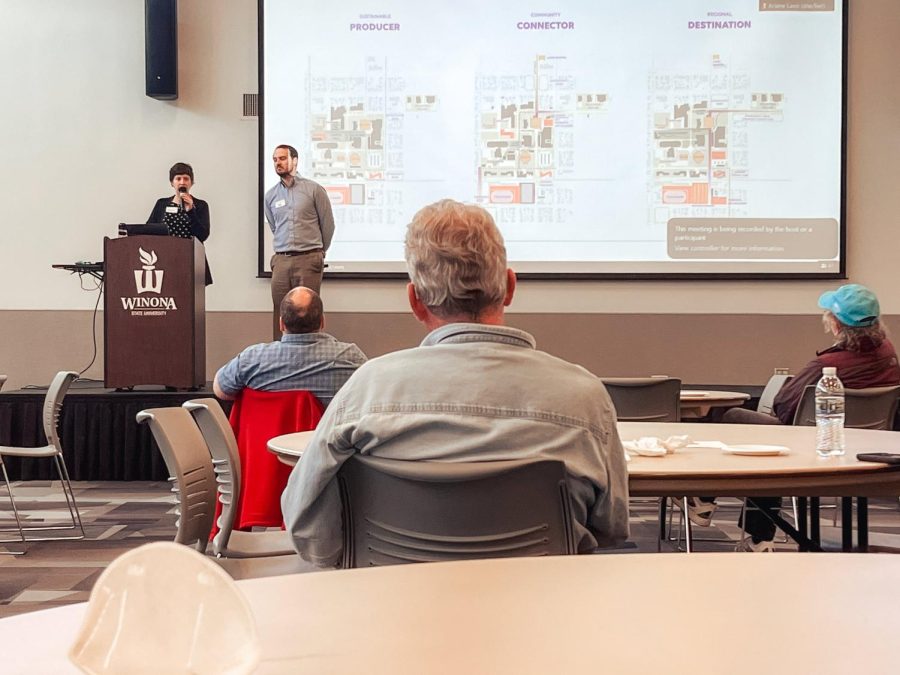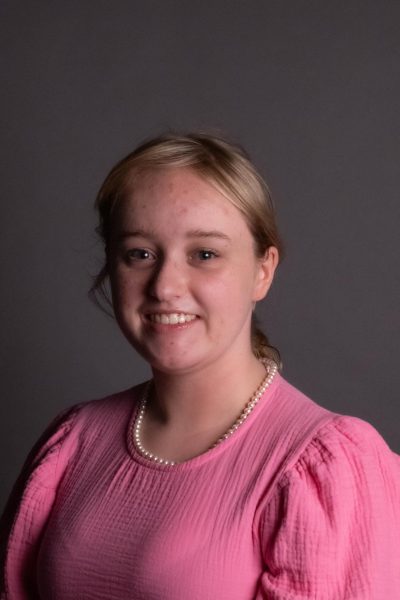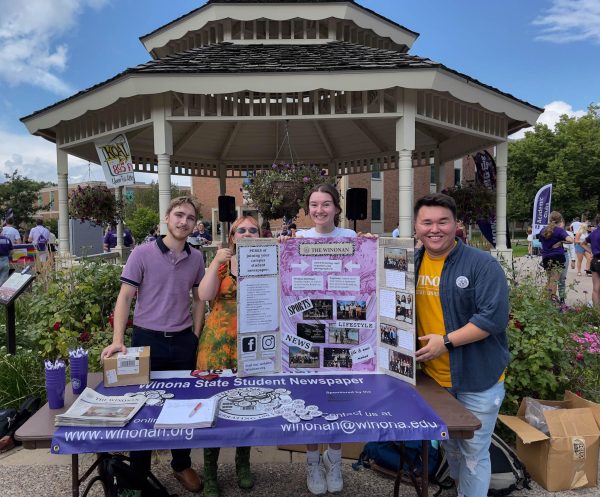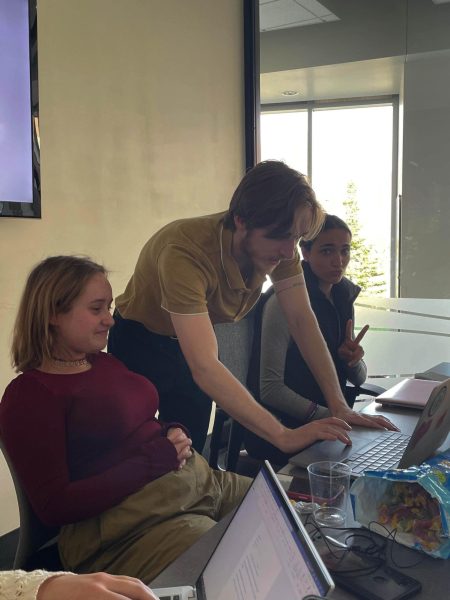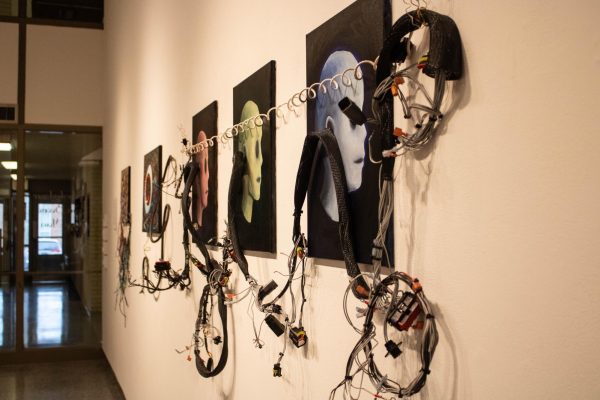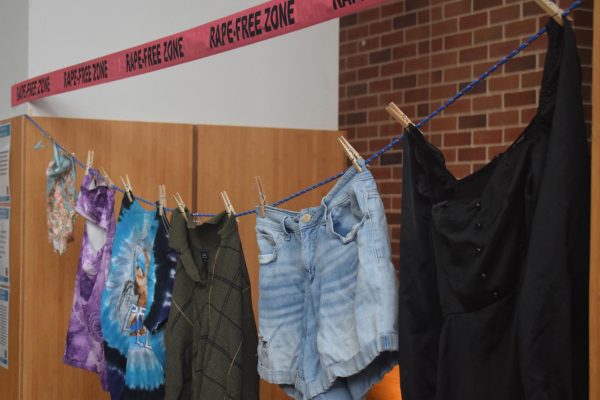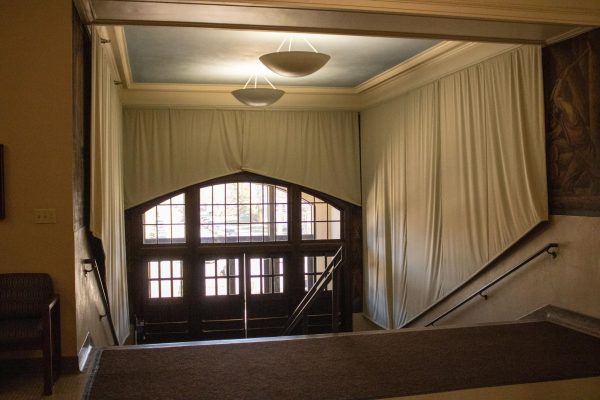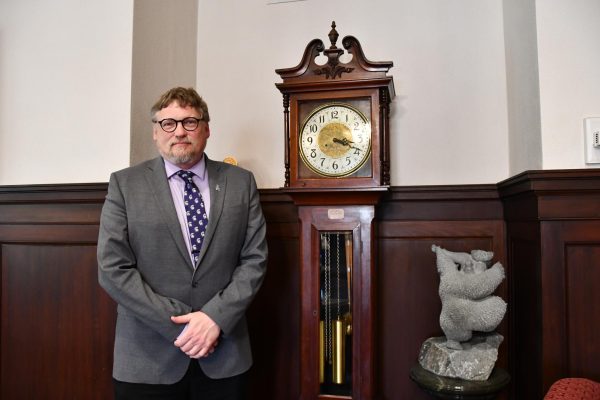Winona State seeks community input on future design plans
At the planning committee event was a mix of community members, staff, faculty and students, who joined to learn about potential renovations coming to WSU.
April 27, 2022
Winona State University held a town hall-style event on its Winona campus last week, April 21, to discuss potential design concepts and renovations for the school’s main campus. At “Our Brilliant Tomorrow: Campus Planning Town Hall” in-person and virtual attendees, including faculty, community members and students, were able to not only listen to the proposed concepts but also share their thoughts on them as well.
The event was held in Kryzsko Commons-Ballroom from 12-1:15 p.m. while the Rochester campus held a similar event virtually the following morning on April 22, “Brilliant Tomorrow: Rochester Campus Planning Workshop”.
Roughly 25 people attended the Winona presentation in person and about 70 were in attendance via Zoom.
Rebecca Celis, the lead architect and presenter, said the three proposed plans were created in accordance with the Minnesota State system. Celis works for the Hammel, Green and Abrahamson architecture firm.
“We are doing a comprehensive facility plan which is a requirement for Minnesota State systems
to update every five years. So, we were selected to complete this year’s Winona State comprehensive facility plan as part of that greater Minnesota State process,” Celis said.
According to the Minnesota State website, the board of trustees have long since had a policy dedicated to all state colleges to update their Comprehensive Facilities Plans, previously known as master plans, on a regular basis or every five years.
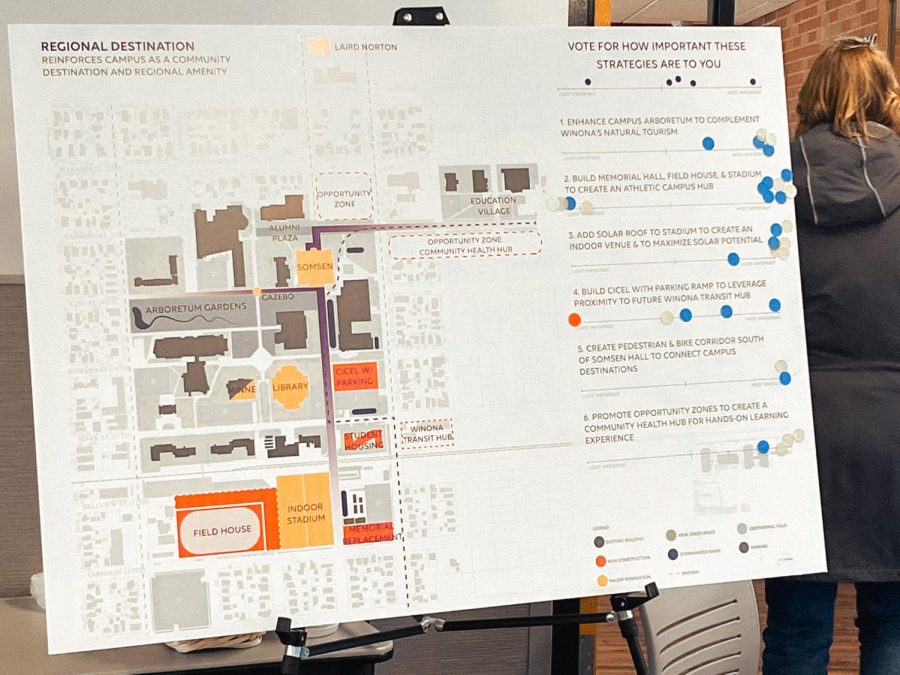
The proposed concepts for campus renovations included but are not limited to a campus mall, new residence halls, academic building changes like replacing Minné Hall and a new tree garden. Alongside these potential renovations, Winona State also hopes to create an entirely carbon neutral campus by 2050.
Winona State’s Athletics Director, Eric Schoh, attended in person and spoke on the proposed concepts, which include updates to athletic facilities.
“If we all put our sustainability hats on and look at what’s in here that’s going to be great for Winona State and the community, we can figure out the programming stuff, we can figure out the usage stuff,” Schoh said. “Let’s keep focused on what this plan maybe is for and how do we get to sit at the table and be excited about the new things that come. If you tear down Memorial [Hall], I lose every locker room that we have. You know what that means? We’re going to have new locker rooms. It’s going to be awesome. Let’s do this!”
Cassidy Daniel, a liberal arts student and captain of the women’s rugby team and only DI sport at Winona State, the Black Katts, asked about some of the proposed changes to athletics facilities and accessibility.
Celis, alongside an engineer working on the project, said they have been in talks with several administrative leaders at Winona State to try to ensure an all-around accessible and efficient plan is created.
“[The proposed concepts are] really forward thinking while also pushing us forward and preserving what we love about this campus. So, I was really happy to see even some negative comments that come out of things that maybe are long shots or maybe things that are beloved, helps us in understanding our process and understanding the community better and understanding how we craft the vision,” Celis said.
Celis emphasized that the three proposed concepts are not solidified at this point and the presentation’s goal was to gain feedback straight from the community.
Dr. Jefferson, a retired Winona State professor and local community member, spoke several times, emphasizing the importance of keeping the current alumni center and First Congregational Church buildings, both near the school’s main campus, throughout any potential renovations and expansion.
“We will fight you tooth and nail if you shut down the church. There have already been incidents of destruction of property through stain glass windows that have been very expensive,” Dr. Jefferson commented.
Celis replied to Jefferson, expressing her noting of those locations for the plan’s future changes and improvements.
Other questions asked from several attendees included questions about tuition fees impacting the plans, how the plans could be funded, concerns involving environmental factors and more. Funding questions could also not be answered due to the prematurity of the project.
“We put out a number of ideas today that were really meant to be… provocations, conceptual designs to push the boundaries to see how far we could get. I’m really excited to see some of the engagement we had in the questions,” Celis said.























































